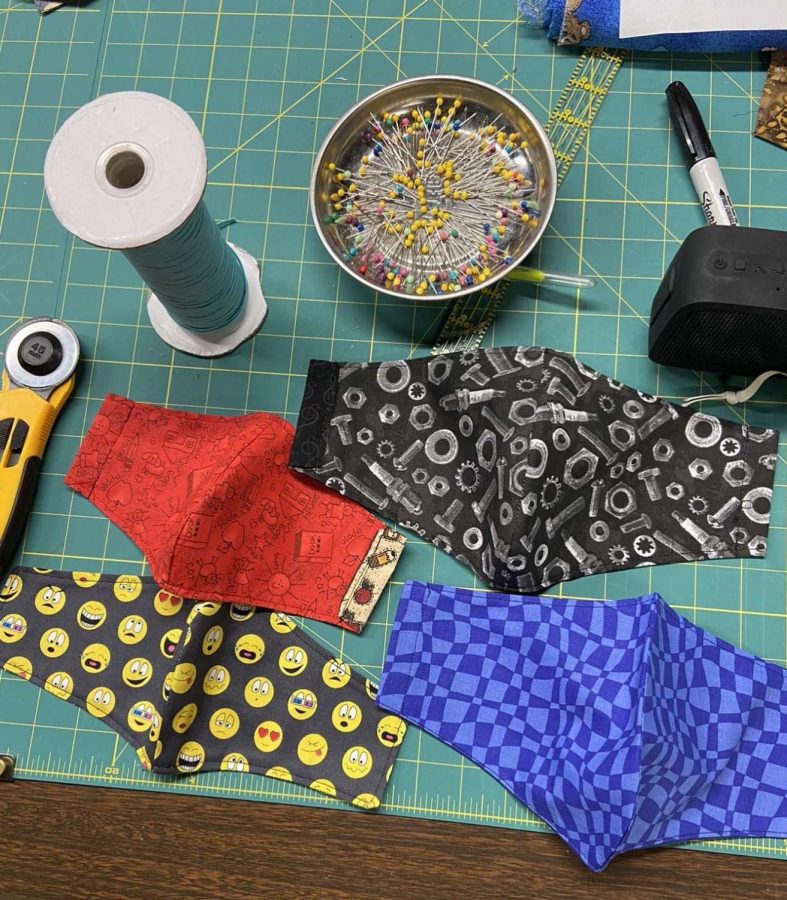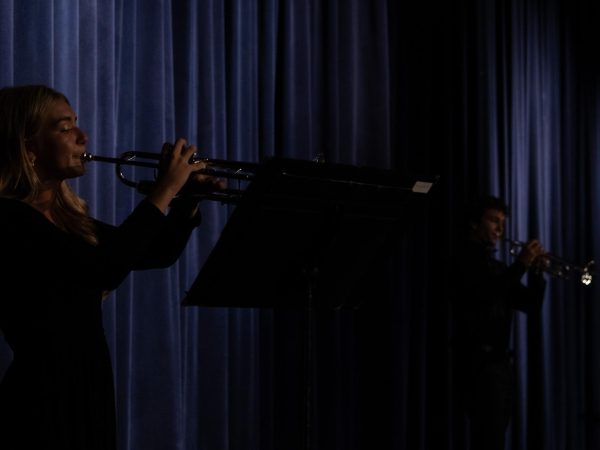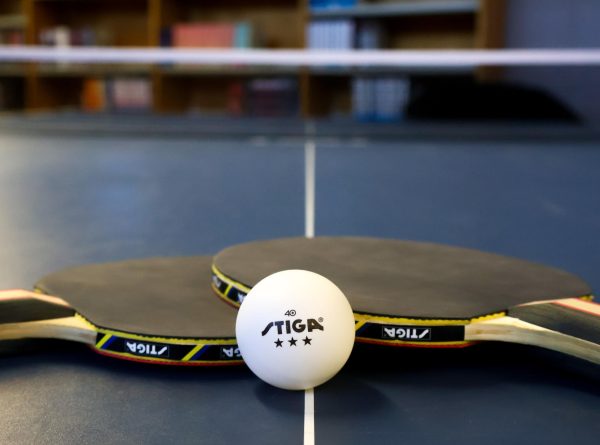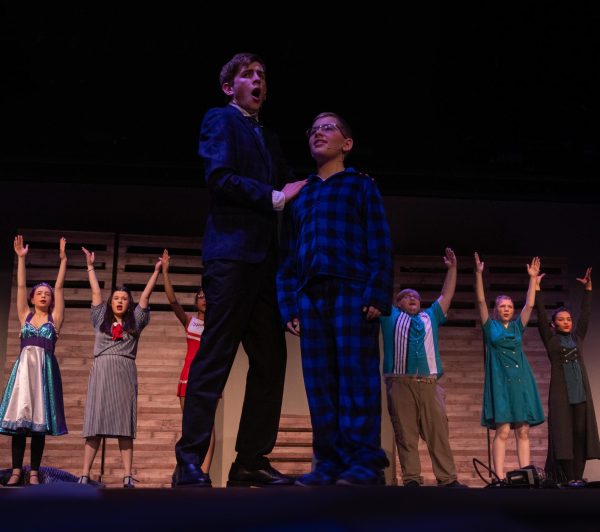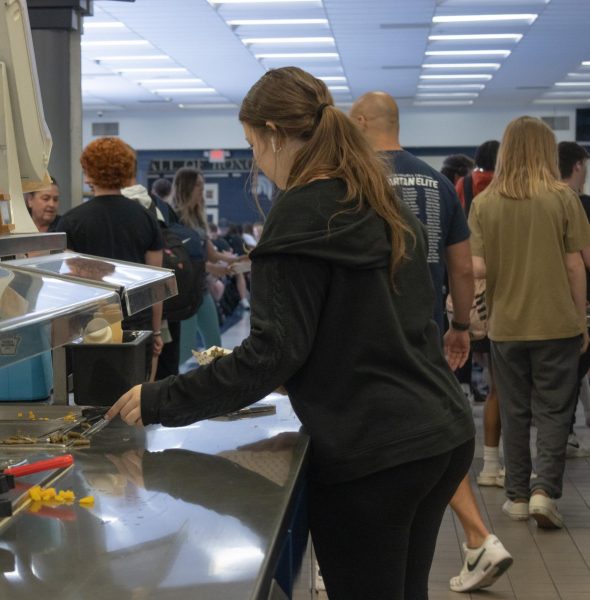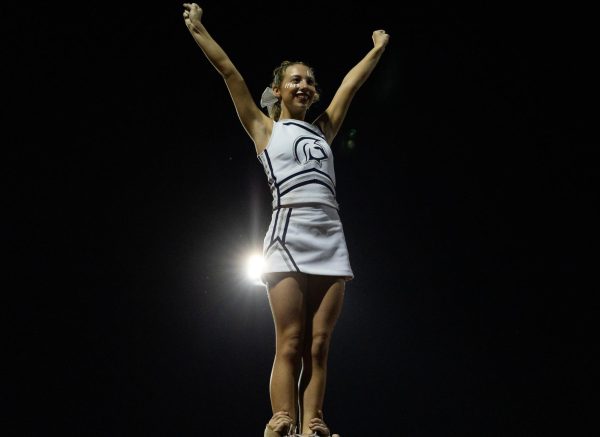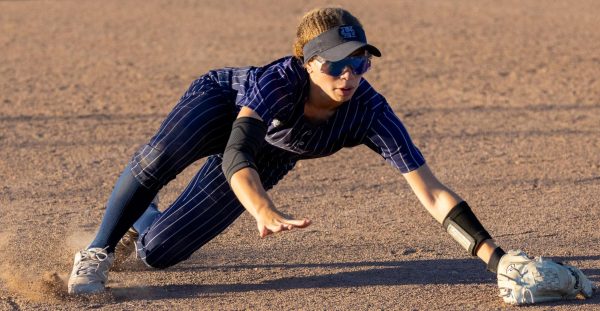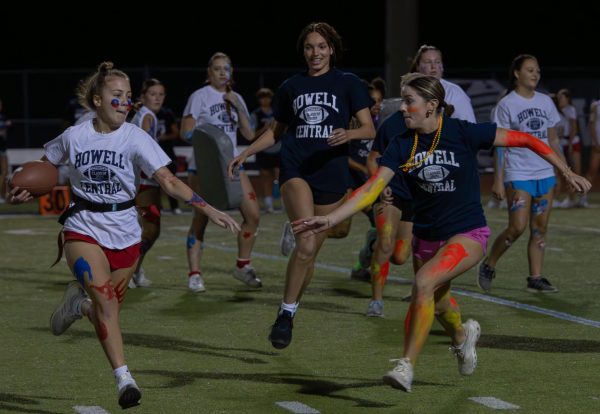Pitching In Over Procrastination
Lesa Harrmann aids healthcare workers during quarantine
Photo Provided by Lesa Harrmann
Harrmann’s work table, littered with masks in the process of completion.
While most students have spent this seemingly never-ending quarantine binge-watching and playing video games, others have spent it doing productive activities to benefit those on the front lines fighting the crisis at hand. One such student is sophomore Lesa Haarmann who has been making masks for healthcare professionals during her extra time at home.
Haarmann was inspired to begin making masks for hospital workers by her aunt, a nurse at St. Louis Cardinal Glennon, one of the many hospitals struggling to find supplies to deal with the highly infectious disease.
“My aunt works at Cardinal Glennon and they were running low, so my mom and I started making them so they would keep themselves safe in times like this,” Haarmann said.
According to Haarmann’s aunt, Ms. Gina Dennis, the need for protective gear for those taking care of the sick is very high. Hospitals have even gone so far as to extend the reuse of materials to try to maximize the use of all products used to the greatest extent possible.
“This is a time when we are ‘extending the use’ of our PPE (reusing) because we are in an unprecedented pandemic,” Dennis said. “I have been a nurse for 22 years and I have never been asked to do this before. It’s a little frightening to be honest.”
During this health crisis, Dennis stresses the importance of everyone wearing masks while out and about, due to the necessary shielding it provides from others’ germs.
“Everyone should wear a face covering of some sort, preferably a mask, when outside,” Dennis said. “The mask you wear protects others from getting your germs. The mask they wear protects you from getting their germs.”
As a first resort, however, she urges people to stay home, and that if going out in public is unavoidable and essential, then they should try to maintain social distancing from others.
“Stay home, and if you can’t do that then social distance and maintain space between people,” Dennis said.
The masks Haarmann is making for the hospitals are simple, effective, and most importantly free. In this time of crisis, she feels it is not appropriate to charge those most desperate for them is appropriate.
“[The materials necessary to make the masks are] fabric, iron, a sewing machine, elastic, and pipe cleaners. They take about 5-7 minutes [to make],” Harrmann said. “No, we are not currently selling them. We believe that they should be free of charge because they’re needed everywhere and everyone might not have the money for them.”
The spirit of giving is not in shortage during this time, shown by a program initiated by hospitals in the area, in which these healthcare facilities opt to share resources they normally compete for. Additionally, Dennis adds a way in which others who are willing can help provide supplies.
“In an unprecedented move, all of the big hospitals in our local areas have partnered together to establish a coalition to help each other out with needed supplies and donations. Usually we are competing for healthcare services and dollars,” Dennis said. “You can check out BJC.org/CoronavirusDonations. We are also in need of thermometers.”
Your donation will support the student journalists of Francis Howell Central High School. Your contribution will allow us to purchase equipment and cover our annual website hosting costs. FHCToday.com and our subsequent publications are dedicated to the students by the students. We hope you consider donating to allow us to continue our mission of a connected and well-informed student body.



